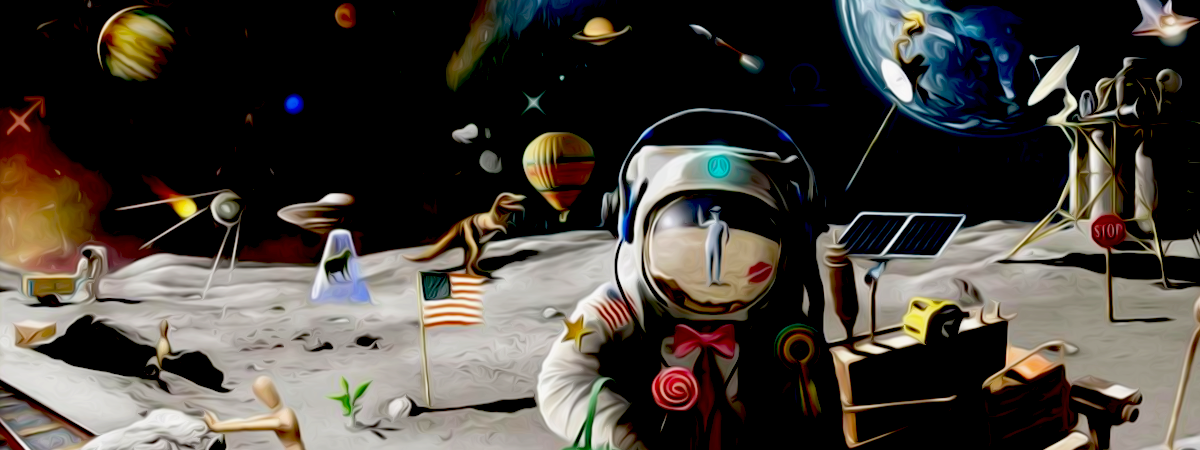It comes as no surprise that people are so protective of their traditions. After all, tradition is familiar and safe. Tradition offers the comforts of routine, habit, and ritual.
We need to be aware, however, of the subtle ways tradition traps us in the known world and prevents us from disrupting the status quo and from birthing new ideas. By allowing ourselves to be bogged down by our traditions, we close ourselves off from opportunities that are essential to our evolution and, perhaps more important, revolution.
Tradition traps us in the known world and prevents us from disrupting the status quo Tweet This Quote
More insidious are the moments when tradition serves to protect stale and outdated ideas, when it causes us to scoff at newness or reject ingenuity, and therefore hold us back from new experiences, big or small. A step away from tradition is a step toward the unknown and, depending on the situation, the unknown is a scary place to be.
This is where the entrepreneur comes in, and why I like to think of entrepreneurs as our modern day heroes. Entrepreneurs, relentless in their quest for innovation, become the guides for those too fearful to abandon the comforts of tradition.
Joseph Campbell, the foremost authority on mythology, understands the hero’s journey as a road map of how we might live our lives. In the hero’s journey, all of us begin in the “known world,” to borrow Campbell’s phrasing. This is where we are born—it is our position in the complex social nexus of family, religion, education, and geographic location. The known world offers a path that is predictable and safe. For the entrepreneur, however, it is limiting, even suffocating. Something pulls the entrepreneur away, a call from the universe to seek the unknown. To heed this call, in my opinion, is an act of heroism.
Throughout most of my personal and professional life, I have dedicated myself to pushing against tradition and embracing the unknown. Early on, I perceived that in Western tradition we tend to organize our identities through oppositions. Said another way: you can be a lawyer or you can be an artist; you subscribe either to logic and numbers or to intuition and empathy. These oppositions don’t work for me, and they don’t work for most people. This attitude encourages us to explore only one side of ourselves while denying other potentially productive facets of ourselves.
Surrounded by so many oppositions, we live under the tyranny of “or.” So I’ve made it my firm’s work to encourage people to instead view the world of possibilities that are opened up when we embrace the power of “and.”
The power of “and” is something that we try to embody in every facet of our work at the Meriwether Group. It allows us to bring spirituality into the office, to be executives and yogis. In our work, it has led us to pair up some of the most iconic brands for unexpected collaborations that explode the boundaries we create in our conception of brands that eventually tire them out.
By embracing “and,” entrepreneurs bring products and services into the world that disrupt tradition, and by doing so they build iconic brands. Tweet This Quote
Tea, for example, is heavily steeped in tradition. But it is also elevated by ritual and ceremony in East and Western cultures alike. Eastern traditions are where we typically find green, oolong, and Pu-erh teas, and the elaborate tea ceremonies of Japan, China, Taiwan, Korea, and more. Western tradition, on the other hand, favors black tea, herbal infusions, and is culturally embedded in a variety of rituals, such as afternoon-high tea in the United Kingdom.
When master teamaker, Steven Smith, approached me with the idea of blending a tea that would emulate the themes of my book, Heed Your Call, we both knew it would have to combine elements and traditions of East and West, much like those that so heavily influenced my impression of the world. This tea embodies the power of “and” through an unlikely pairing of fragrant hyssop and spearmint from North America, green tea from China, and Vietnamese ginger. It intends, paradoxically, to promote energy as well as calm.
By embracing “and,” entrepreneurs bring products and services into the world that disrupt tradition, and by doing so they build iconic brands. When it comes down to it, innovation is just a type of disruption, and we need to welcome this kind of disruption in our lives. It may sound odd, but it is my belief that we should disrupt the status quo whenever we can, whether it’s disrupting the market with unexpected products or cutting through the noise and bustle of your day with an hour of yoga or meditation.



